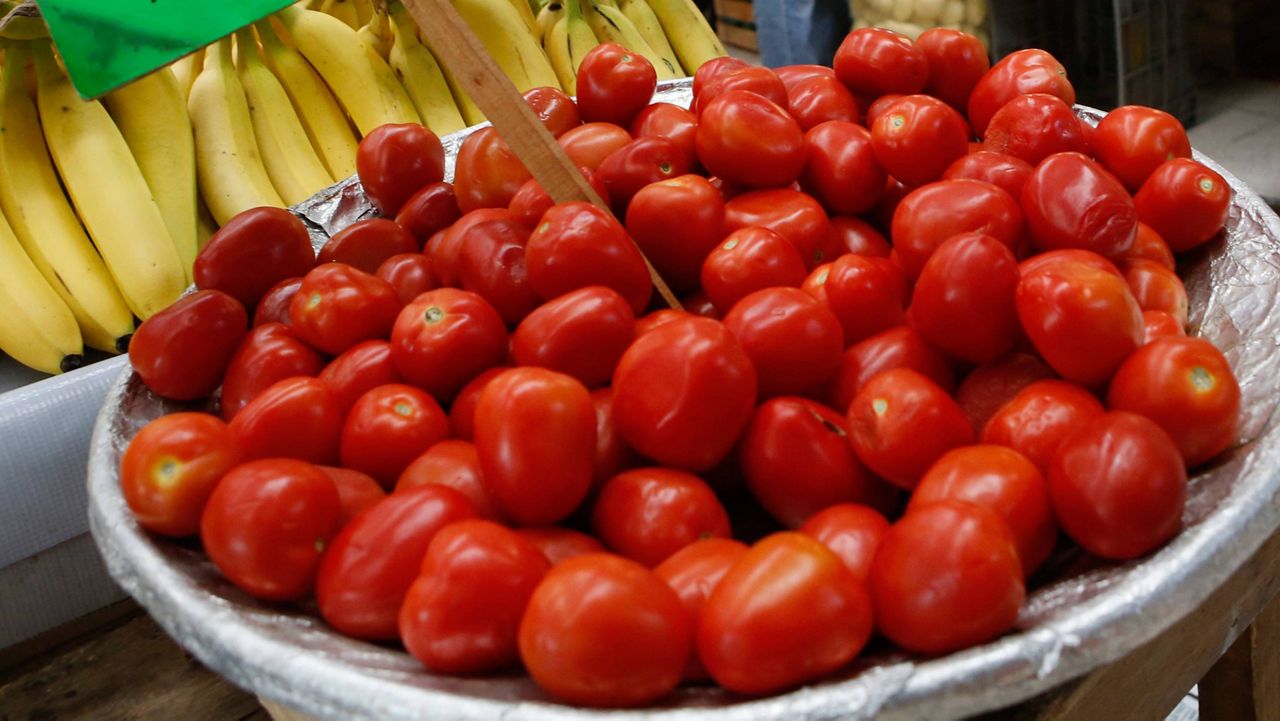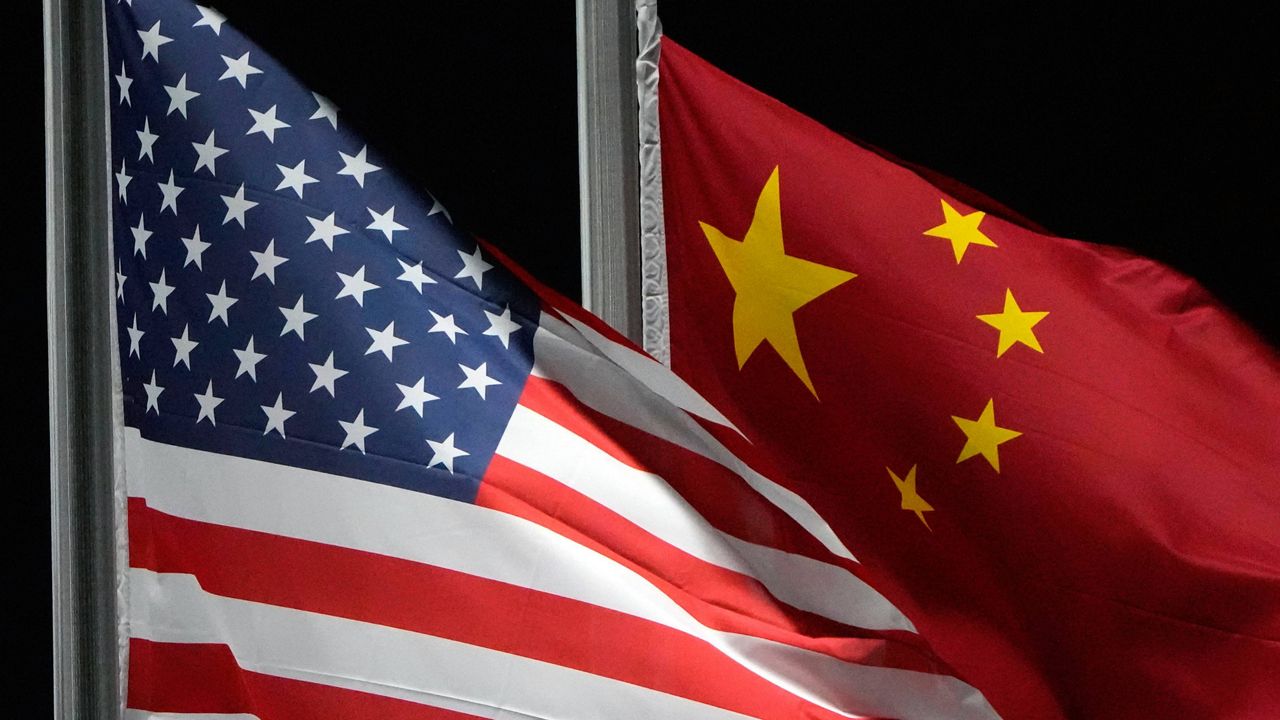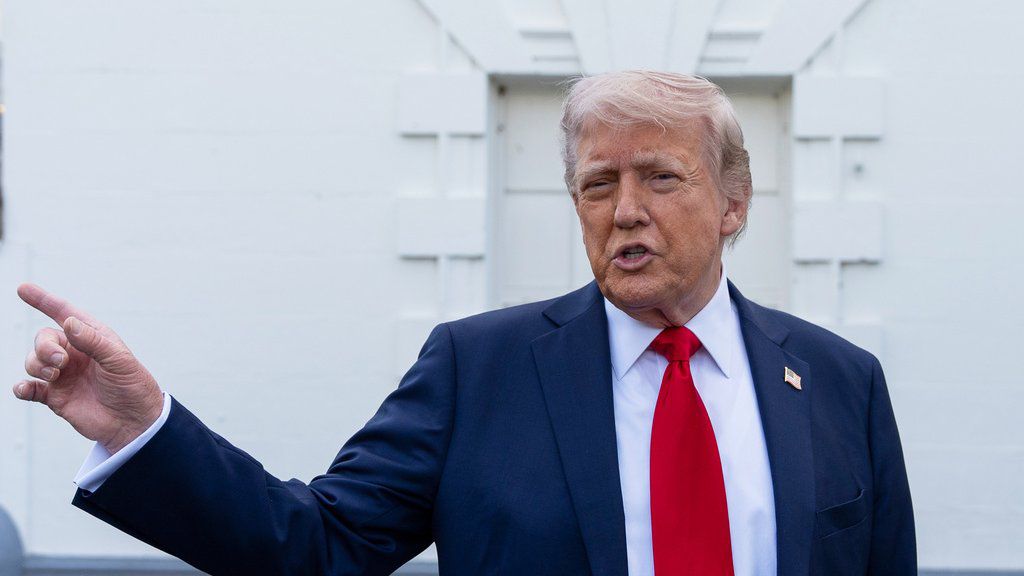WASHINGTON, D.C. — Mexican leaders warned that they could retaliate with tariffs on some American meat, a day after the U.S. announced plans to impose a 21% “anti-dumping duty” on most tomatoes from Mexico starting in mid-July.
“Mexico always has the possibility of applying sanctions in the case of the chicken or pork meat,” Mexican President Claudia Sheinbaum said during a news conference Tuesday.
Sheinbaum denied that her country sends unfairly priced tomatoes to their northern neighbor and said she hopes to reach an agreement with the Trump administration to avert the tomato tariff within the coming 90 days.
On Monday, the Commerce Department said the it intends to terminate a 2019 agreement made during President Donald Trump's first term that suspended an investigation into whether tomatoes from Mexico were being “dumped,” or sold in the U.S. at less than a “fair value.” The 2019 agreement averted tariffs on fresh tomatoes and chilled tomatoes.
The withdrawal is slated to go into effect July 14, at which point a tariff of 20.91% would be placed on imports of most tomatoes from Mexico.
“The current agreement has failed to protect U.S. tomato growers from unfairly priced Mexican imports, as commerce has been flooded with comments from them urging its termination. This action will allow U.S. tomato growers to compete fairly in the marketplace,” the department wrote in a news release Monday.
The U.S. is Mexico’s top tomato export market with America importing $2.7 billion worth in 2023, according to U.S. Department of Agriculture report. Nearly a quarter of the tomatoes produced that year were from the Sinaloa state.
Scheinbaum said she believes the U.S. would continue to import tomatoes from Mexico even if the tariff went into effect this summer, and predicted that salads and ketchup would then rise in price. “There is no substitute,” she said of her country’s crop.
Michael Strain, the director of Economic Policy Studies at the D.C.-think tank American Enterprise Institute, also contended that the move would make tomatoes more costly for Americans.
“It is astonishing that the Trump administration is intentionally trying to make tomatoes more expensive,” he wrote on X.
But, several Republican lawmakers from Florida cheered the planned tomato tariff as a win for their state. Sen. Rick Scott called the announcement “a major win for Florida farmers and growers across the country.”
Rep. Vern Buchanan said in his statement, “This decision finally opens the door to strong, enforceable trade remedies that will protect American jobs, strengthen our rural economy and ensure our farmers can compete and thrive.”
Florida ranked second to California in U.S. tomato production in 2023.








